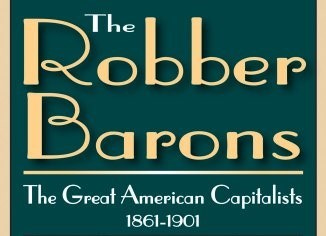Corporate power, the fourth branch
The force that the federalist constitutional architecture could not check
The founders of the American constitutional republic should not be blamed for the failure of the American Republic to check corporate power. They lived in a world in which production was primarily agricultural. As the American Republic moved forward, it formulated two visions in tension. On the one hand, there was the vision of Jefferson and Jackson, that a wide distribution of property to primarily small-scale producers would ensure economic democracy. And on the other hand, the idea of Hamilton, that the state ought to adopt policies favorable to the expansion of industrial manufacturing. Both sides were writing and acting in the context of the world as they knew it. Neither side had experienced the inevitable concentration in industrial and agricultural production, which emerged in the second half of the nineteenth century. When monopoly capitalism came into being, the nation lacked the capacity to make the necessary adaptations in its constitutional system of checks an…


